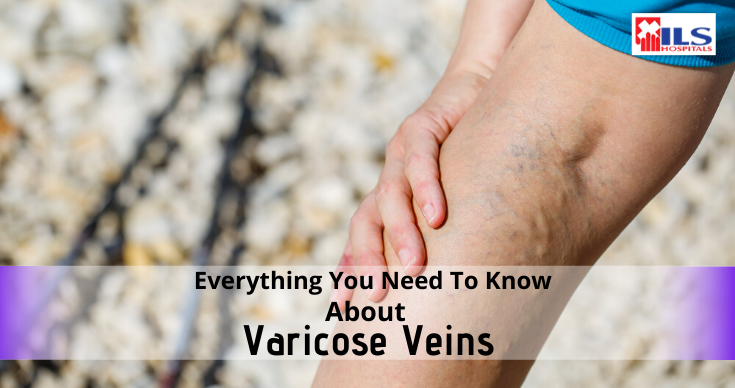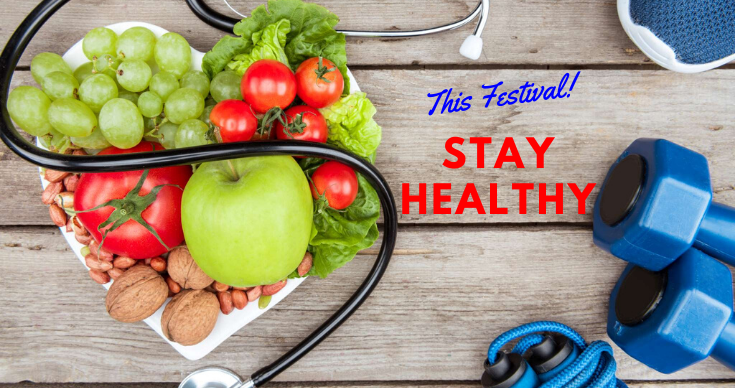Everything You Need To Know About Varicose Veins
What do we mean by varicose veins? Varicose veins are abnormally enlarged veins that appear to be swollen and magnified. These ostensible veins are often found in the legs.
So why do they occur in the first place? Well, varicose veins form due to defective and damaged valves present in the veins that obstruct blood to flow successfully. Varicose veins can become a critical medical emergency under certain serious complications which we will discuss later in the blog.
Here are some symptoms that confirm the existence of varicose veins.
-
Discoloured veins
-
Skin discolouration
-
Restless leg syndrome
-
Pain and swelling in the affected area
-
Muscle cramps
-
Heaviness in the legs
-
Fatigue.
One thing we have discovered is that the primary cause for varicose veins is malfunctioning veins. Let’s discuss who are more vulnerable to varicose veins.
1. Women (especially when pregnant or on the verge of menopause)
2. Old people
3. A person who does standing jobs
4. People with obesity
5. A person suffering from chronic constipation
6. Individuals with a family history of this medical condition.
The complications involved with varicose veins that require an immediate rush to the hospital are as follows:
-
Clotting of blood
-
Severe bleeding
-
Inflammation of the veins
-
Hyperpigmentation
-
Chronic Venous Insufficiency (CVI).
The doctor will perform these certain diagnostic tests to verify varicose veins.
-
Venogram
-
Duplex ultrasound scan
-
Doppler ultrasound.
Some treatment associated with varicose veins are as follows:
1. Compression stockings
The doctor might suggest you wear compression stockings to subdue the symptoms related to varicose veins.
2. Sclerotherapy
If your varicose veins are not severe, you might be prescribed sclerotherapy as a treatment. In this treatment, the varicose veins are treated with the help of saline injections given at regular sessions.
3. Surgical treatment
Surgery is involved when the patient’s condition becomes critical. The surgical procedures that one might expect with severe varicose veins are
– Vein ligation and stripping
– Endovenous laser therapy
– Endoscopic vein surgery.
Varicose veins are not simply a cosmetic problem as they can cause serious other health-related issues in due course of time. If you’re suffering from varicose veins, you need proper diagnosis and treatment as soon as possible. ILS Hospitals, one of the best hospitals in Salt Lake is here to help you out with unsightly and problematic varicose veins. For more information, get in touch with our team.
8 Tips To Stay Healthy During The Festival Season
It is the festive season, the month we all wait for every year. This is the time when we get to enjoy the most with our family and friends. But if during this time anyone gets sick, then all plans are bound to go down the drain. So, ILS Hospitals in Kolkata is going to give you tips on how to stay healthy and disease-free during this time.
-
Over the last few years, the rain has been an ever-present factor in the festival season especially before diwali, which also makes it easy for diseases like malaria and dengue to fester. So use mosquito repellent when going out and a net when going to sleep.
-
Viral infections like cough, cold, and fever are also very common during this season. Don’t drink cold water or cold drinks after coming from outside. Try to avoid them as much as possible, even at home. This will prevent you from getting infected with a cold infection. Especially at late night, the temperature falls and the chances of getting a cold increase. So try to avoid cold drinks, ice-creams etc. at night.
-
While going out during the day, make sure to carry an umbrella, sunglass and sunscreen with you at all times, or you may get sun-burned badly.
-
When burning crackers during Diwali, take extra precautions against any accidental burning. Be careful about smoke and loud noises specially for the children and aged individuals.
-
Eating out during the festive season is very common and half the enjoyment is in that only. So as we cannot completely avoid eating out but rather can eat wisely. Most roadside stalls are not much healthy, so choose wisely from where you are eating. If possible, carry water from home before going out.
-
It’s also a holiday time and we like to go out more as well. Going out every day during the festive season can make one tiresome, drenched out of energy and make feel thirsty. If possible carry lemonade or ORS with you. This would help to restore the electrolyte imbalance of the body.
-
If you are going out at night then make sure that you get enough sleep during the day as good sleep is important for the body. Also, staying awake at night is not good for small children and the aged individuals. So, make sure that they get their proper sleep.
-
Try to avoid the crowd if you are an asthma patient or this may aggravate your problems and may sustain attacks of asthma. Diabetes patients should continue their diabetes treatment as usual during this time and limit eating sweets as well, especially when it can be tempting once you get so many sweet boxes from your neighbors on Diwali.
Follow these tips to stay healthy and have a great Diwali and a festive season ahead.
Breastfeeding Tips for Every New Mother
As Robert S. Mendelsohn rightly said, “Mother’s milk, time-tested for millions of years, is the best nutrient for babies because it is nature’s perfect food.”
If you are a mother, you can certainly relate to it. However, breastfeeding is one extremely challenging job. Many gynaecologists and obstetricians encounter new, inexperienced mother panicking due to not being able to nurse properly. So, today we are offering some tips for new mothers and moms-to-be to have a somewhat more comfortable nursing time.
- Position yourself comfortably. If you are not comfortable, neither will be your baby.
- There is no perfect rule, so choose what works best for you. Experiment and pick between couch, bed and rocking chair.
- Place as many pillows you need under back, lap or legs for support and comfort.
- Hold and cradle your baby on the same side as the breast you want to nurse with. Use a pillow for support, if needed.
- You have an overactive ‘super baby’, you can hold her lower arm under your arm to mitigate the possibility of interference.
- Cup your breast and let your baby latch onto it gently. It might take several attempts before the baby stay latched on, so be patient.
- Once the baby starts feeding, hold her close to support and encourage the nursing.
- After the baby is done, don’t pull out your nipple instantly, as it may cause injury to your nipples. Instead, insert a finger in her mouth to break off the contact gently.
Ideally, each session of breastfeeding last only several minutes, but quite frequently, as your baby’s stomach is small and digestion is quite fast. Stay prepared to get in action every few hours. Feel free to try out different lactating position to find the one working best for you. As a tip to relax, you can play some music or instrumental in a mild tone. It will encourage you to relax, have happy thoughts and focus on your bond with your baby.
While breastfeeding, you may encounter many complications such as insufficient milk supply, sore or cracked nipples etc. Moreover, if you had a high-risk pregnancy or preterm birth, your baby might have a problem latching on. Instead of enduring all the discomfort or depression, seek help. As you might need special guidance or equipment from your gynaecologist or obstetrician, get in touch with one.
Breastfeeding is a rather special time of your life. Do all you can to make this memorable and comfortable.




